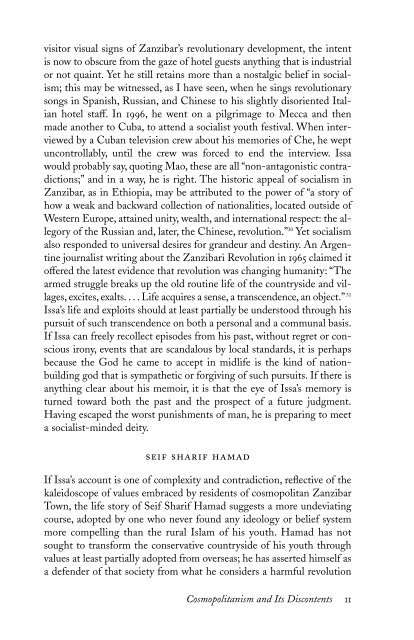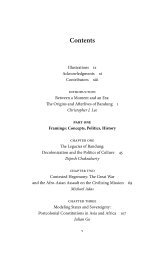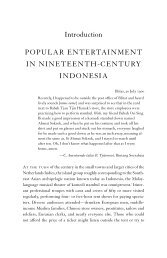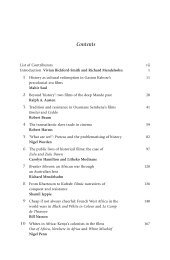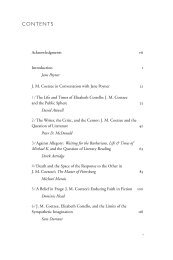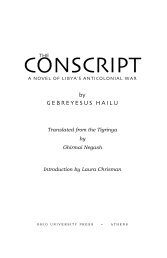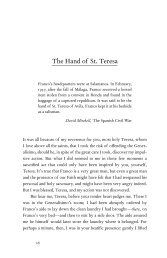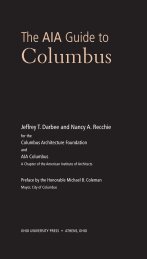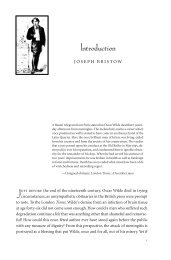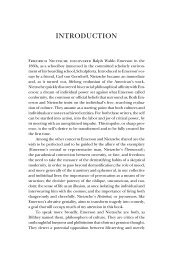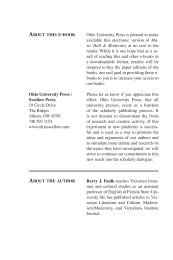Race, Revolution, and the Struggle for Human Rights in Zanzibar ...
Race, Revolution, and the Struggle for Human Rights in Zanzibar ...
Race, Revolution, and the Struggle for Human Rights in Zanzibar ...
You also want an ePaper? Increase the reach of your titles
YUMPU automatically turns print PDFs into web optimized ePapers that Google loves.
visitor visual signs of <strong>Zanzibar</strong>’s revolutionary development, <strong>the</strong> <strong>in</strong>tent<br />
is now to obscure from <strong>the</strong> gaze of hotel guests anyth<strong>in</strong>g that is <strong>in</strong>dustrial<br />
or not qua<strong>in</strong>t. Yet he still reta<strong>in</strong>s more than a nostalgic belief <strong>in</strong> socialism;<br />
this may be witnessed, as I have seen, when he s<strong>in</strong>gs revolutionary<br />
songs <strong>in</strong> Spanish, Russian, <strong>and</strong> Ch<strong>in</strong>ese to his slightly disoriented Italian<br />
hotel staff. In 1996, he went on a pilgrimage to Mecca <strong>and</strong> <strong>the</strong>n<br />
made ano<strong>the</strong>r to Cuba, to attend a socialist youth festival. When <strong>in</strong>terviewed<br />
by a Cuban television crew about his memories of Che, he wept<br />
uncontrollably, until <strong>the</strong> crew was <strong>for</strong>ced to end <strong>the</strong> <strong>in</strong>terview. Issa<br />
would probably say, quot<strong>in</strong>g Mao, <strong>the</strong>se are all “non-antagonistic contradictions;”<br />
<strong>and</strong> <strong>in</strong> a way, he is right. The historic appeal of socialism <strong>in</strong><br />
<strong>Zanzibar</strong>, as <strong>in</strong> Ethiopia, may be attributed to <strong>the</strong> power of “a story of<br />
how a weak <strong>and</strong> backward collection of nationalities, located outside of<br />
Western Europe, atta<strong>in</strong>ed unity, wealth, <strong>and</strong> <strong>in</strong>ternational respect: <strong>the</strong> allegory<br />
of <strong>the</strong> Russian <strong>and</strong>, later, <strong>the</strong> Ch<strong>in</strong>ese, revolution.” 30 Yet socialism<br />
also responded to universal desires <strong>for</strong> gr<strong>and</strong>eur <strong>and</strong> dest<strong>in</strong>y. An Argent<strong>in</strong>e<br />
journalist writ<strong>in</strong>g about <strong>the</strong> <strong>Zanzibar</strong>i <strong>Revolution</strong> <strong>in</strong> 1965 claimed it<br />
offered <strong>the</strong> latest evidence that revolution was chang<strong>in</strong>g humanity: “The<br />
armed struggle breaks up <strong>the</strong> old rout<strong>in</strong>e life of <strong>the</strong> countryside <strong>and</strong> villages,<br />
excites, exalts. . . . Life acquires a sense, a transcendence, an object.” 31<br />
Issa’s life <strong>and</strong> exploits should at least partially be understood through his<br />
pursuit of such transcendence on both a personal <strong>and</strong> a communal basis.<br />
If Issa can freely recollect episodes from his past, without regret or conscious<br />
irony, events that are sc<strong>and</strong>alous by local st<strong>and</strong>ards, it is perhaps<br />
because <strong>the</strong> God he came to accept <strong>in</strong> midlife is <strong>the</strong> k<strong>in</strong>d of nationbuild<strong>in</strong>g<br />
god that is sympa<strong>the</strong>tic or <strong>for</strong>giv<strong>in</strong>g of such pursuits. If <strong>the</strong>re is<br />
anyth<strong>in</strong>g clear about his memoir, it is that <strong>the</strong> eye of Issa’s memory is<br />
turned toward both <strong>the</strong> past <strong>and</strong> <strong>the</strong> prospect of a future judgment.<br />
Hav<strong>in</strong>g escaped <strong>the</strong> worst punishments of man, he is prepar<strong>in</strong>g to meet<br />
a socialist-m<strong>in</strong>ded deity.<br />
seif sharif hamad<br />
If Issa’s account is one of complexity <strong>and</strong> contradiction, reflective of <strong>the</strong><br />
kaleidoscope of values embraced by residents of cosmopolitan <strong>Zanzibar</strong><br />
Town, <strong>the</strong> life story of Seif Sharif Hamad suggests a more undeviat<strong>in</strong>g<br />
course, adopted by one who never found any ideology or belief system<br />
more compell<strong>in</strong>g than <strong>the</strong> rural Islam of his youth. Hamad has not<br />
sought to trans<strong>for</strong>m <strong>the</strong> conservative countryside of his youth through<br />
values at least partially adopted from overseas; he has asserted himself as<br />
a defender of that society from what he considers a harmful revolution<br />
Cosmopolitanism <strong>and</strong> Its Discontents 11


